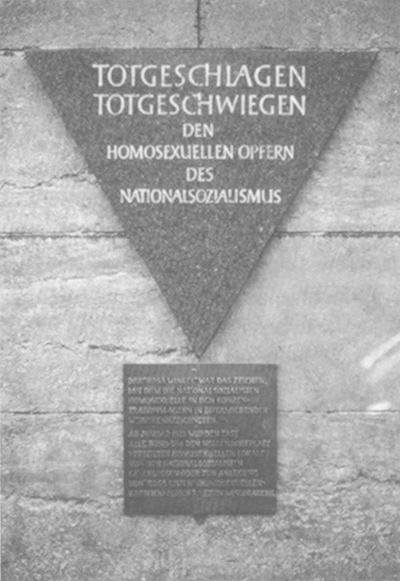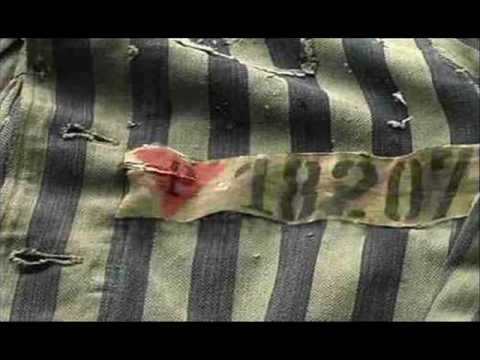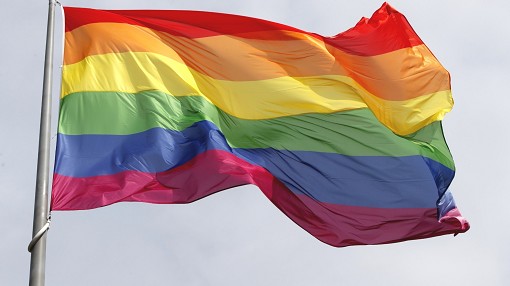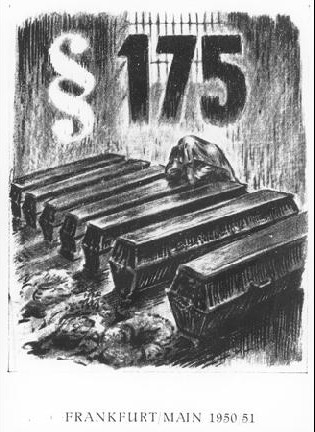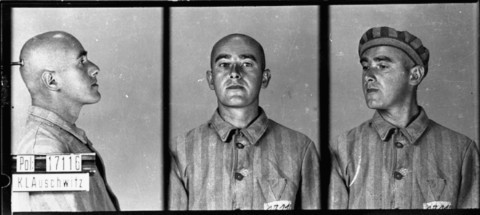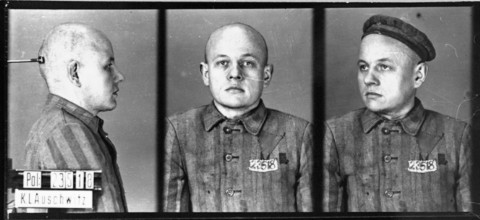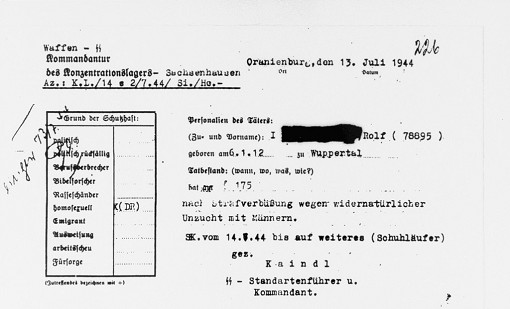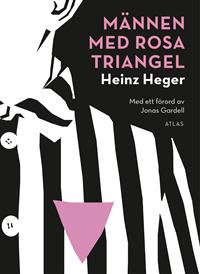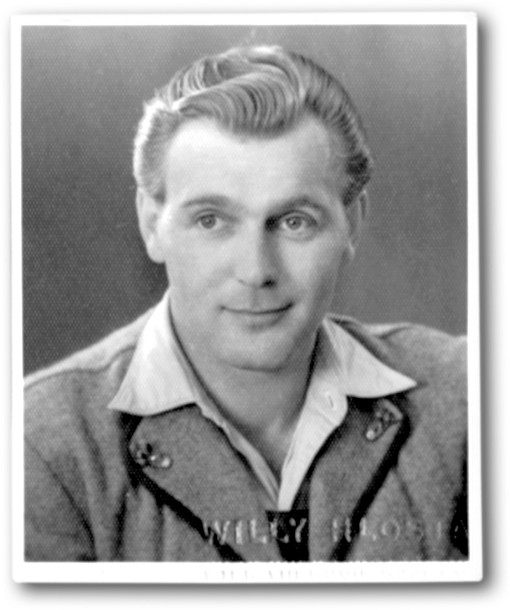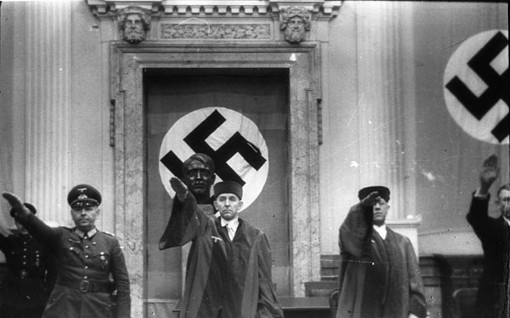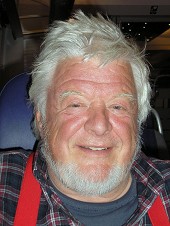|
I dag är det Förintelsens minnesdag. Då ska vi minnas alla som blev dödade i nazisternas läger under andravärldskriget. Flera miljoner judar blev dödade. Nazisterna dödade också romer, homosexuella och människor med funktionsnedsättningar. Den 27 januari år 1945 kom ryska soldater till lägret Auschwitz i Polen. Människorna i lägret blev fria denna dag. Därför är den 27 januari Förintelsens minnesdag. Då ska vi minnas och hedra alla som dog. Idag minns vi de miljoner av oskyldiga människor som förlorade sina liv i Förintelsen, ett av de värsta folkmorden i historien. Deras brott, inget mer än hur de föddes.
Från koncentrationsläger till fängelse Under nazisternas styre arresterades minst 100 000 homosexuella människor,många av dem sattes i koncentrationsläger och fick en rosa triangel på ärmen, https://encyclopedia.ushmm.org/content/en/article/persecution-of-homosexuals-in-the-third-reich. Rapporter talar för att nazisterna utförde hemska
experiment på dem i jakt på ett botemedel för homosexualitet. Lagföringenav homosexuella skedde enligt den ökända § 175 som förstärktes av nazisternamed straffbarhet även för homosexuella tankar, https://encyclopedia.ushmm.org/content/en/article/paragraph-175.
Bibliografi: https://www.ushmm.org/collections/bibliography/gays-and-lesbians
Den gripande dagboken av Manfred Lewin, som han gav till sin judiska vän ochgay partner, Gad Beck https://www.ushmm.org/collections/the-museums-collections/collections-highlights/do-you-remember-when/cover
Do YouRemember, When What was it like to live as a young Jew in Berlin during the Nazi deportations? This exhibition details the life of Manfred Lewin, a young Jew who was active in oneof Berlin’s Zionist youth groups until his deportation to and murder inAuschwitz-Birkenau. Manfred recorded these turbulent times in a small,hand-made book that he gave to his Jewish friend and gay companion, Gad Beck. Beck, a Holocaust survivor who again lives in Berlin, donated the booklet to the Museum in December 1999. The exhibition centers around the 17-page artifact, which illustrates the daily life of the two friends, their youth group, and the culture in which they lived.
To understand why Manfred Lewin, a young Jew in Nazi Berlin, wrote this book in1941 for his friend Gad Beck—to understand why Gad, 19 and Jewish, risked his life attempting to save Manfred from deportation—read these words from the play that brought them together. German writer Friedrich von Schiller’s DonCarlos: No Matter what you plan on doing, will you promise to undertakeno act without your friend? Will you make me this promise? Friendship, valor, and the fight for freedom were the ideals of this 18th-century German drama. In 1941, Gad and Manfred played the starring roles in their Jewish youthgroup’s reading of the play.
Manfred was born on September 8, 1922, in Berlin where he lived with his parents and four siblings in the predominantly Jewish section of the city. The family lived inpoverty in three little rooms not far from the Beck house at Dragoner Strasse43. Manfred’s father was a barber and his mother Jenny, a former secretary,took care of the family. She often had to find other sources of food to supplement the family’s insufficient Jewish food ration cards.
Gad was born on June 30, 1923, together with histwin sister Miriam. Gad’s mother Hedwig came from a Protestant family, butconverted to Judaism before the marriage with Heinrich Beck in 1920. Thechildren were raised according to Jewish traditions, supported by the Christian relatives. In 1934 Gad changed to the Jewish school in the Grosse HamburgerStrasse. In 1939 his parents were forced to move into the predominantly Jewishsection of Berlin. They could no longer afford the school fees; Gad started towork as an apprentice. 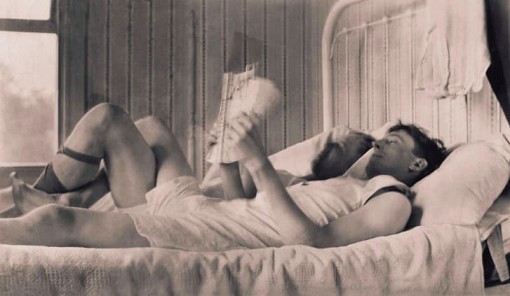 Before the Nazis came to power, Berlin was home to a vibrant gay community. Within weeks of their rise in March 1933, the Nazis drove this population underground and waged a violent campaign against homosexuality. Over the next 12 years, more than 100,000 men were arrested for violating Germany'slaw against "unnatural indecency among men.” During this time, proof was often not required to convict an individual. Some were sent to concentrationcamps and subjected to hard labor, cruelty, and even medical experiments aimedat “curing” them. Join Museum experts for a Pride Month Facebook Live as they give voice to a community silenced during the Holocaust. Speaker Dr. JakeNewsome, Historian, United States Holocaust Memorial Museum Moderator Dr. EdnaFriedberg, Historian, United States Holocaust Memorial Museum https://www.youtube.com/watch?v=7hiOz14jh7k&feature=emb_rel_end https://www.youtube.com/watch?v=x-1uFsOXWhQ
Documenting Nazi Persecution of Gays: Josef Kohout/Wilhelm Kroepfl Collection (Curators Corner #13) United States Holocaust Memorial Museum In 1994, the Museum acquired the unique collection of Josef Kohout. More widely known as Heinz Heger, Kohout recorded his experiences in The Men with the Pink Triangle, the first published account of a gay survivor of the Nazi camps. Dr. Klaus Müller, the Museum'sRepresentative for Europe, shares his story. https://www.youtube.com/watch?v=kj-wGkcyTL8
Persecution of Homosexuals in Germany: During and After the Holocaust -Geoffrey Giles Claremont McKenna College September 28, 2016 GeoffreyGiles, a scholar of groundbreaking research and writings on the Allied occupation of Germany, speaks about the persecution of homosexuals in NaziGermany and in post-war, occupied Germany. https://www.youtube.com/watch?v=3_ccauXODDc The Nazi Policy Against Homosexuals. Lecture by Professor Jennifer V.Evans.
2021-01-27, 20:31 Permalink
Andra bloggar om: Förintelsen Koncentrationsläger kz Paragraf 175 Homosexuella Rosatriangel Nazismen Bowidegren
Förnamn och efternamn är obligatoriskt. E-postadress och webbadress är valfritt.
Skriv sedan din kommentar och klicka på Spara kommentar. |
